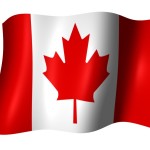Canadian healthcare is one of the few branch where state is rightly proud. Canadian health system is financed by state and is best described as a system of insurance and medical plans of ten provinces and three territories. This system is known as Medicare and provides free or nearly free medical care for all citizens of Canada.
Such a structure has been designed so that health care is in department of local, provincial authorities, but not federal government. Health care systems in each province or territory are linked by common principles, which are set at the national level.
Management and provision of health services – area of responsibility of each province or territory. The province or territory to plan, finance and evaluate the provision of hospital care, the services of physicians and other professionals, some medicines.
The role of federal government in Canadian healthcare system and is limited to ascertaining compliance with general principle of Medicare, partial funding of health programs of provinces or territories and other functions specified in the Constitution. One such feature is direct medical care for specific groups of citizens, which include veterans, indigenous people living in reservation area, military and employees of Royal Canadian Mounted Police. Other functions are prevention and protection of public health and promoting a healthy lifestyle.
What Do You Need To Know about HealthCare System of Canada?
 Canada’s healthcare system relies heavily on primary care physicians, who make up about 51% of all practicing physicians. They are considered to be transfer member between patient and formal health care system controlling access to majority of medical specialists, hospital care, diagnostic checks and prescribing prescription drugs. Such a family doctor can be changed any time you want according to friends’ advice and change of mood.
Canada’s healthcare system relies heavily on primary care physicians, who make up about 51% of all practicing physicians. They are considered to be transfer member between patient and formal health care system controlling access to majority of medical specialists, hospital care, diagnostic checks and prescribing prescription drugs. Such a family doctor can be changed any time you want according to friends’ advice and change of mood.
In Canada, however, there is no “community medicine” system where doctors work directly on governmental structure. Most doctors have their own private practices and enjoy a high degree of autonomy. Some doctors work in hospitals and local health centers. State pays for services of private doctors, depending on assistance provided, fees of such doctors are discharged directly from province or territory budget. Therapists who do not have a private practice, receive a fixed salary, a fee depending on amount of medical services rendered.
When Canadians need medical care, they go to doctor, physician or clinic of their choice and placing their health insurance card, which is issued for all legal citizens and country residents. People do not pay directly for medical services rendered, and they do not need to fill in various forms for services covered by insurance. For such services there is no limits in terms of money or additional payments.
Dentists work independently of health care system, except when needed emergency care dental surgeon. Pharmacies are also independent of state institutions.
More than 95% of all Canadian hospitals operate on principle of non-profit private institutions, managed by the local council of directors, volunteer organizations or municipalities.
In addition to national health insurance system, provinces and territories also provide medical care that part of population that needs more medical services – elderly, children and unemployed. These additional packages of health services often include free medicines, dental treatment, optician services, variety of devices for people with disabilities (prostheses, wheelchairs, etc.) and etc.
While provinces and territories provide additional services of some population segments, this is a service industry in private sector, which means that residents immediately pay them out of pocket. Reasonable in this case is to purchase insurance that covers most of the cost of dental care, eye specialist, etc. Such insurance is often included in compensation package, which is offered along with wages.
When you move from one province to the other residents of Canada may still rely upon free medical care.
In the first year health insurance payment for newly minted immigrants is of maximum rate. From the second year, provision comes into force under which, in case if immigrant’s income does not exceed a certain amount medical insurance is reduced to ordinary amount. The calculation of such assessments is taken into account annual resident’s income rather than sum amount in his bank accounts, so that formal unemployed can qualify for free health care.
Healthcare in Canada is financed primarily by taxes, both local and state income taxes and income taxes from enterprises. Some provinces use to finance health care system by sales taxes and income from lotteries. These additional revenues, however, does not play a great role in health care financing.
In the United States, unlike Canada, health care – are fee-paying. If you go to hospital in the US, you will not avoid problems. The average cost per day of stay in hospital is about $800, and this amount does not include medical services themselves: operation, hospital care, medicines, etc.
Persons who have insurance policy are paid up to 80% of hospital costs, remaining 20% have to pay by yourself. However, Americans manage to save on hospital care, reducing costs to a minimum.
Ideally, it is better not get sick. That is why it is given so much, even painful attention to their own health. Many people jog, go to sports, clubs, etc.




